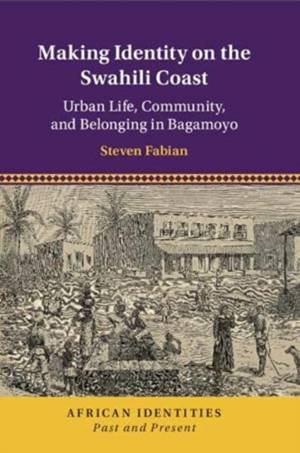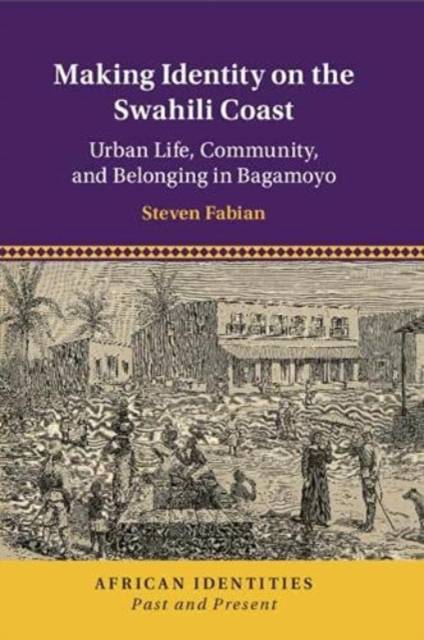
Door een staking bij bpost kan je online bestelling op dit moment iets langer onderweg zijn dan voorzien. Dringend iets nodig? Onze winkels ontvangen jou met open armen!
- Afhalen na 1 uur in een winkel met voorraad
- Gratis thuislevering in België vanaf € 30
- Ruim aanbod met 7 miljoen producten
Door een staking bij bpost kan je online bestelling op dit moment iets langer onderweg zijn dan voorzien. Dringend iets nodig? Onze winkels ontvangen jou met open armen!
- Afhalen na 1 uur in een winkel met voorraad
- Gratis thuislevering in België vanaf € 30
- Ruim aanbod met 7 miljoen producten
Zoeken
€ 67,95
+ 135 punten
Omschrijving
Situated at a crossroads of trade in the late nineteenth century, and later the economic capital of German East Africa, the thriving caravan and port town of Bagamoyo, Tanzania is one of many diverse communities on the East African coast which has been characterized as 'Swahili'. Seeking an alternate framework for understanding community and identity, Steven Fabian combines extensive archival sources from African and European archives alongside fieldwork in Bagamoyo to move beyond the category of 'Swahili' as it has been traditionally understood. Revealing how townspeople - Africans, Arabs, Indians, and Europeans alike - created a local vocabulary which referenced aspects of everyday town life and bound them together as members of a shared community, this first extensive examination of Bagamoyo's history from the pre-colonial era to independence uses a new lens of historical analysis to emphasize the importance of place in creating local, urban identities and suggests a broader understanding of these concepts historically along the Swahili Coast.
Specificaties
Betrokkenen
- Auteur(s):
- Uitgeverij:
Inhoud
- Aantal bladzijden:
- 369
- Taal:
- Engels
- Reeks:
- Reeksnummer:
- nr. 1
Eigenschappen
- Productcode (EAN):
- 9781108710046
- Verschijningsdatum:
- 28/10/2021
- Uitvoering:
- Paperback
- Formaat:
- Trade paperback (VS)
- Afmetingen:
- 152 mm x 229 mm
- Gewicht:
- 494 g

Alleen bij Standaard Boekhandel
+ 135 punten op je klantenkaart van Standaard Boekhandel
Beoordelingen
We publiceren alleen reviews die voldoen aan de voorwaarden voor reviews. Bekijk onze voorwaarden voor reviews.











